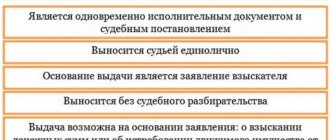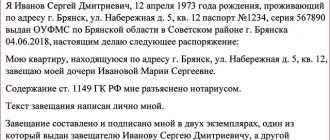A will is an official document that states the testator's last wishes regarding his or her property. The will comes into force only after the opening of the inheritance case (the death of the testator).
According to the law, the testator in the will has the right to independently determine to whom and in what shares the property will be transferred after his death. Often, after the opening of an inheritance case and the publication of a will, relatives express their disagreement with the will of the author of the document. This may be a reason to challenge the will. In addition, the act may be declared invalid in case of violation of the norms established by civil law.
Whatever the reason, a will is contested in court. It is recommended to seek the help of a lawyer. You can get a free consultation with a specialist in inheritance matters in our company. Call the phone number provided or write to us in the special window.
Challenging a will under the law
Issues of challenging a will are regulated in Art. 1131 Civil Code of the Russian Federation. In accordance with this normative act, in case of violation of the provisions of the law, a will may be declared invalid by a court decision or regardless of such a decision.
To challenge a will, the interested party must file a lawsuit in court after the opening of the probate case. There needs to be a good reason for this.
The basis for a challenge cannot be a clerical error or any minor violation of the procedure for drawing up, signing or certifying a document. It is important that the will of the testator is not understood ambiguously.
The law allows challenging not the entire will, but only part of it or individual orders. Invalidation of a specific order does not invalidate the entire document from the point of view of legislation.
The power of a will and who can challenge it
For the will to enter into legal force, it is necessary to submit an application to a notary to open an inheritance case. After this, the text of the document is read out, and the heirs are notified of the testator’s last will. The act is valid until the contrary is established.
The list of those who can challenge a will for inheritance is established in Art. 1131 Civil Code of the Russian Federation. Such persons include those whose property rights were infringed as a result of writing a declaration of will. In other words, an outsider will not be able to file a lawsuit (for example, concerned neighbors).
Typically, claims to challenge the testator's last will are filed by close relatives or spouses - those who could claim to receive property in the absence of a will. The vast majority of such legal proceedings are initiated by first-degree heirs.
Let's give an example. A man has died who, during his lifetime, made a will in favor of his partner. According to his will, she received an apartment and a dacha. The testator's daughter, when inheriting by law, would be the only heir of the first stage. She has the right to apply to the court to annul the will, since she is interested in this. But, let’s say, her maternal aunt will not be able to file a claim, since her property rights were not violated in any way.
Often, a claim is filed in court by the spouses of the testator in cases where he bequeathed property without the consent of the husband/wife. The fact is that citizens do not take into account the fact that everything that is acquired during marriage through paid transactions is the joint property of the spouses and is divided in half. In simple terms, the husband cannot bequeath the entire apartment to anyone, since by law he only owns 50% of this property.
When going to court, it will be necessary to prove that in the absence of a will, the plaintiff would have the right to receive the inheritance. Documents used as evidence are a birth certificate, a certificate from the registry office, a marriage certificate, etc.
What to do if the inheritance has already been sold
Often, heirs are faced with a situation where the testator’s property was sold before they went to court to challenge the inheritance. The situation is complex, requiring more time and resources to resolve, but not hopeless.
In this case, contacting a lawyer is of paramount importance. He will help you determine a plan of action, tell you about the prospects for your specific situation, and, on your instructions, will conduct business when reaching agreements.
New developments in civil legislation since 2021 have come to protect the rights of a bona fide purchaser. In accordance with Art. 8.1. According to the Civil Code of the Russian Federation, the buyer who purchased the property is considered to be in good faith, unless otherwise proven.
If, during the purchase, the buyer considered the seller to be the proper owner and was based on the Unified State Register data, there is no way to challenge the transaction. The solution to this situation is to pay compensation.
The amount of compensation is calculated based on the actual value of the property, which is determined on the day the inheritance is opened in accordance with Art. 1105 of the Civil Code of the Russian Federation.
The right of inheritance is a guaranteed right of a citizen in accordance with Art. 35 of the Constitution of the Russian Federation. In turn, civil legislation regulates the transfer of the testator's property to the heirs according to the law and, just like the Constitution of the Russian Federation, gives the right to protection from attacks, including judicial protection.
Is it permissible to challenge a will before the opening of the inheritance?
According to the law, challenging a will before the opening of the inheritance is not allowed. The opening of the inheritance occurs after his death or recognition as missing in court. This is explained by the need to maintain the secrecy of the will.
The testator is not obliged to notify other persons about what he wrote in the document and what his will is regarding the property. He can do this at will, but he has no obligation to notify the heirs.
After the death of the testator, the will can be issued to the heirs, whose names are indicated in the text of the document. A testamentary act is granted only on the basis of presentation of a certificate of death of the testator.
Everyone who participated in its execution is required to keep the secret of the will:
- witnesses;
- notary;
- translator;
- a person who has the right to sign the act instead of the testator for objective reasons;
- executor;
- the person certifying the will instead of a notary (for example, the captain of a ship, the chief physician of a medical institution, the commander of a military unit, etc.).
Administrative liability is provided for failure to maintain the secrecy of a will.
Accordingly, since no one knows about the contents of the document, challenging it before the opening of the inheritance case is impossible.
Definition of the term
Expert opinion
Stanislav Evseev
Lawyer. Experience 12 years. Specialization: civil, family, inheritance law.
Inheritance means the property of a citizen at the time of death, which is subject to transfer to the heirs after his death. The inheritance also includes property rights and obligations (Article 1112 of the Civil Code of the Russian Federation).
Obligations that are inextricably linked with the personality of the deceased citizen are not an inheritance. For example, child support or compensation for damage caused to the health of another person or fines for traffic violations. Personal non-property rights are also not included in the inheritance.
Reasons for challenging a will
The grounds for challenging a will after the death of the testator may be general or special. Common reasons include the following:
- the testator could not be aware of the actions being performed due to the presence of a psychological disorder;
- the testator suffered from senile dementia;
- the will was drawn up while under the influence of alcohol or drugs;
- the text of the document does not correspond to the actual will of the testator;
- the document was formatted inappropriately.
Special grounds for challenge include:
- making a will under pressure or threats;
- drawing up a document with gross errors (for example, there is no signature of the testator);
- the document was drawn up by a group of persons, and not just the owner of the property;
- the authorized person did not have the right to certify the testamentary act;
- the signature was forged and this fact was proven;
- the heir specified in the will is declared unworthy by a court decision.
Proving the existence of these circumstances is often difficult. A medical examination and witness testimony may be required. A competent lawyer will prepare an evidence base and do everything possible to win the case.
Please note that minor clerical errors, typos and errors in design cannot become a reason for challenging and invalidating a will.
How to challenge a will
Disputes regarding the validity of a will are heard in court. The challenge process follows the following algorithm:
- Determining the basis for the challenge.
- Collection and preparation of evidence that will confirm the existence of grounds for challenging.
- Drawing up a statement of claim. Determining the judicial authority where the claim should be filed.
- Payment of the state fee for going to court. Details can be found in the office or on the website of the judicial authority.
- Filing a claim.
- Taking part in court hearings.
- Entry of the decision into legal force.
If the decision is made in your favor, after it enters into legal force, you must obtain a certificate of accession to inheritance rights. If you do not agree with the decision in the case, you can challenge it in a higher court.
It is worth trying to resolve the issue with the heir under the will peacefully. Perhaps you will be able to negotiate and come to a compromise. In this case, an agreement is drawn up and certified by a notary.
An heir who has received property illegally may try to dispose of it. For example, sell. To ensure the safety of the inheritance, it is necessary to send a corresponding application to the court. In such a situation, the court imposes an arrest until all circumstances are clarified.
After the will is revoked, in most cases, the persons named in the document will be able to participate in the distribution of the inheritance by law or on the basis of another will recognized as valid.
Methods of inheritance
The legislator provided 2 grounds for inheritance:
- Acceptance of inheritance by law. Inheritance by law implies the participation of close relatives in the division of the property of the deceased citizen. Priority is given to spouse, children and parents. After them, the remaining relatives of the testator are called to inherit. If the property is the property of spouses, then the marital share is initially allocated. And only then did the division of property take place between family members. Everyone gets the same share. Its increase is possible due to the refusal of one of the relatives.
- Transfer of property rights by order. A will somewhat simplifies the inheritance procedure and allows the testator to independently determine the circle of beneficiaries. For example, a person can assign an apartment or car to a brother, friend or neighbor on the landing. If necessary, property is alienated in favor of a legal entity. However, the document is not absolute. It can be challenged in court. Also, the testator cannot deprive compulsory heirs of part of the property. This includes socially vulnerable people.
Also, dependents of a deceased citizen can participate in the division of property (Article 1148 of the Civil Code of the Russian Federation). These persons inherit property on an equal basis with the relatives of the testator.
Claim to contest a will
Cases of challenging a will are heard by courts of general jurisdiction. The claim must be filed at the place of residence of the defendant. In cases where the claims relate to real estate, the case is considered at the location of such property.
The claim is drawn up according to the requirements set out in Art. 131 Code of Civil Procedure of the Russian Federation. The text must include:
- identification data of the plaintiff and defendant - full name, residential address, contact information;
- identification data of the testator;
- essence of the dispute;
- grounds for invalidating a will;
- the cost of the claim (the estimated value of the disputed property);
- claim to court;
- list of attached documents;
- date and signature of the plaintiff.
It is important to correctly draw up a statement of claim, since otherwise the court may refuse to open proceedings. It is advisable to contact a lawyer for assistance in registration. Correctly drafting a claim will increase the chances of winning the case.
There is no established list of documents for filing a claim. Papers are prepared depending on the situation. The list includes:
- general passport;
- death certificate of the testator;
- documents confirming the degree of relationship with the testator (they also serve as the basis for going to court) - birth certificate, marriage certificate, certificate from the registry office;
- witness statements;
- letters and correspondence of the testator with other persons, if they are relevant to the case;
- documents from medical institutions;
- results of the examinations carried out;
- other papers.
If necessary, you can request the necessary documents through the court. For example, a judicial authority can make a request to Rosreestr to find out what property is owned by the testator.
When can the statute of limitations be extended?
Not every recipient of property by inheritance can change the limitation period. It will take powerful arguments that will convince the judge of the legality of the plaintiff’s demands.
There is no precise indication of the situations that are considered acceptable for changing the statute of limitations.
Based on examples of judicial practice, the following reasons are identified:
- the potential heir lived in another state for a long time and was not notified of the death of the testator;
- the citizen was not officially notified of the possible right of inheritance within the time limits established by law;
- the cause was a health condition (comatose state, severe illness);
- long business trip to another city or country;
- the citizen served in the ranks of the Russian Army;
- the heir served his sentence in prison.
If a citizen files a statement of claim, he must indicate a valid reason in it. In order for the case to be considered in court, supporting documentation must be provided.
Subsequently, the court will notify the applicant of the time of the hearing and of the extension of the statute of limitations under the will.
The following documents can be considered evidence:
- certificate from the military registration and enlistment office;
- a document confirming that the citizen has lived in the territory of another state for a long time;
- medical report from a doctor;
- a certificate from work to confirm the fact of a long business trip;
- document from the correctional service.
The application to the court must include the following information:
- the time when the applicant learned about the death of the testator;
- valid reasons for the absence of the plaintiff at the time of the death of the testator;
- justification of the reasons why the plaintiff did not previously present his inheritance rights;
- grounds for changing the statute of limitations for inheritance;
- links to current legislation.
When drawing up and submitting such documentation, it is advisable to consult with an experienced lawyer to ensure that all necessary papers are completed correctly.
The legislation establishes a maximum period during which interested parties can present their rights. It will be 10 years from the date of death of the citizen.
Notification of the opening of an inheritance is handled by a notary , and he cannot always notify all existing heirs. The latter, in turn, cannot influence this situation.
Based on Art. 1072 of the Civil Code of the Russian Federation, it is permissible to restore the limitation period, and the plaintiff is classified as an heir under the following conditions:
- objective reasons for missing deadlines are given;
- a strong evidence base is presented;
- the applicant applied for judicial assistance no later than six months after he learned about the possible receipt of the inheritance.
If necessary, the judge will hear testimony from witnesses. If the court satisfies the claims, then all documents issued earlier are automatically invalidated. The property is considered a common estate.
After recognizing the applicant as an heir, the court sets the size of the shares for each of the successors.
The will is drawn up by a notary at the place of residence of the testator. It will not be difficult for his possible heirs to find out about the fact of drawing up a will. In the absence of such a document, the property of the deceased is distributed according to the law .
We remind you that even if you thoroughly study all the data that is in the public domain, this will not replace the experience of professional lawyers! To get a detailed free consultation and resolve your issue as reliably as possible, contact specialists through the online form .
How to challenge an inheritance without a will
To challenge an inheritance without a will, you will need to go to court. This is the only way to establish the legality of inheritance. For this to happen, you need to follow the algorithm:
- Compliance with deadlines for filing a claim.
- Preparation of documents confirming the existence of grounds for challenging the inheritance.
- Filing a claim in court.
- Taking part in the trial.
- Obtaining a court decision.
- Contacting a notary office to cancel a previously issued certificate of accession to inheritance rights (if the court decision is positive).
It is important to consider the statute of limitations for all inheritance cases. As a general rule, it is three years, but in some cases this period may increase or decrease. It all depends on the grounds for challenging the inheritance in court.
The limitation period begins on the day the inheritance case is opened. However, in some situations, the heir learns that his rights have been violated much later. Then the period will be counted from the moment he is informed about it. For example, this can happen if the heir is outside the country and for some reason it is impossible to contact him.
Regardless of the grounds for filing a claim, it is necessary to adhere to the legal standards adopted by law. In accordance with Art. 131 of the Code of Civil Procedure of the Russian Federation, the claim must contain the following information:
- name of the judicial authority to which the application is submitted;
- details of the plaintiff and defendant;
- a description of the circumstances under which the plaintiff’s rights were violated;
- evidence of circumstances;
- claim;
- the cost of the claim, if the valuation is required by law;
- list of attached documents;
- date of filing the claim;
- plaintiff's signature.
The claim is filed at the place of residence of the defendant or at the location of the real estate about which the dispute is initiated. However, if the matter concerns issues of actual inheritance or establishment of other legal facts, it is necessary to apply at the place of residence of the plaintiff.
Arbitrage practice
To win a case in court, the heir will need strong arguments. It is necessary to consistently state the essence of the problem and provide evidence of the stated facts. Typically, probate hearings occur with the participation of an experienced lawyer.
Example. The plaintiff went to court. He asked to invalidate the certificate issued by the Administration of the village council. The plaintiff also insisted on invalidating the certificate of inheritance that was issued to the defendants and recognizing his ownership rights. The essence of the requirements is that the defendants entered into inheritance rights by way of presentation to the house and land. The basis for processing the documents was a certificate from the Administration. The document confirmed the actual acceptance of the inheritance. However, it was originally issued for a different purpose - receiving compensation for a cash deposit in a bank. The defendants did not admit the claim. The notary also objected to the claims. The claim was partially satisfied. The certificate of actual acceptance of the inheritance by one and the defendants was declared invalid. The inheritance certificate issued to the specified person was also declared invalid. The right of common shared ownership of the house and plot of land was recognized for the plaintiff (Decision of the Barysh City Court of the Ulyanovsk Region dated May 4, 2012, case No. 2-154/2012).
Time limits for challenging a will
The statute of limitations for challenging a will is the time period during which a person whose rights have been violated has the right to go to court to obtain protection. The statute of limitations will depend on the basis for the challenge. This is provided for in Art. 181 Civil Code of the Russian Federation.
Thus, you can file a lawsuit and challenge a will within the following time:
- three years if the requirements relate to the application of the consequences of the invalidity of a void transaction and its recognition as invalid;
- one year upon request to recognize a voidable transaction as invalid, as well as to apply its invalidity.
The calculation of the period begins from the moment when the interested person learned about the violation of his rights and interests.
general information
The limitation period for inheriting real estate and revising individual clauses of a will is 3 years.
Often, notaries do not notify all potential successors about the opening of an inheritance case. If even one possible heir was not notified, then all inheritance documentation issued without him can be declared invalid during the legal proceedings.
The standard period is 3 years, in some cases this period can be significantly increased. If the heir has a significant reason for missing the filing of an application for accession to inheritance rights, the limitation period can be restored.
The maximum limitation period is determined by paragraph 2 of Art. 196 of the Civil Code of the Russian Federation, it is equal to 10 years.
The law establishes deadlines when it is possible to challenge the transfer of inherited property. The limitation period is counted starting from the day following the death of the testator. The exact date is determined if there is a corresponding doctor’s conclusion or after the court order comes into force.
If the expiration of the statute of limitations in the case falls on an official holiday, it will be extended until the first working day. For special cases, a different counting method is provided. For example, if the heir did not find out in time about the death of the testator.
Is it possible to challenge inheritance?
It does not matter under what order of inheritance the dispute is carried out. The procedure always follows the following principles:
- The notary does not have the authority to resolve disputes. Only the court deals with annulment.
- To confirm your position, you will need to provide evidence and necessary documents.
- Cancellation is only possible on legal grounds.
- Initiation of a case is permissible only by interested parties, that is, legal heirs.
- After a positive decision is made in the case, the property is distributed among all heirs whose rights are not disputed.
Cancellation is carried out upon entry into inheritance rights under a will. If the document loses legal force, the property is distributed among the legal heirs.
An analogue of annulment upon entry into inheritance under the law will be the recognition of the heir as unworthy. If there are several heirs, a separate procedure is carried out for each of them. When the heirs of the first priority are deprived of their rights, the opportunity to receive property arises for the representatives of subsequent priority.
Remember
- Inheritance without a will does not deprive the heir of the right to challenge the inheritance if rights and legitimate interests are infringed, since a ban on the protection of violated rights is unacceptable.
- The closer the family ties with the testator, the higher the chances of a positive outcome in the case of challenging the inheritance.
- Consulting a lawyer, collecting documents, filing a claim, participating in court proceedings are simple steps to protect your rights.
- Challenging an inheritance after other persons have entered into it is possible.
- The issue of selling property before it has been disputed is resolved by paying compensation.
Have you ever had to contest an inheritance under the law? What decision did the court make?
Gift deed or will: what cannot be challenged
According to the law, both a deed of gift and a will can be challenged. This right is ensured in civil legislation. However, in reality, achieving such a court decision is equally difficult. The interested party will need to provide irrefutable evidence that their rights were infringed and that the current heirs took possession of the property or the right to receive it illegally.
The deed of gift may be canceled in the following cases:
- the donee made an attempt on the life of the donor or members of his family, inflicted physical injury on any of them;
- the donee killed the donor - in this case, the relatives of the donor will be able to cancel the gift agreement in court;
- the new owner treated the received property carelessly, while for the donor it was of particular intangible value;
- the organization or individual entrepreneur issued a deed of gift within six months before the official declaration of bankruptcy;
- at the time of registration of the deed of gift, the owner of the property was under the influence of alcohol or drugs, was ill, was experiencing serious psychological trauma, or could not be held accountable for his actions for other reasons.
If we talk about a will, then the reasons for declaring it invalid lie in the condition and actions (inactions) of the testator. Such reasons may arise when, during the execution and signing of a will, the owner disposing of his property:
- was in a limited capacity by a court decision or due to not reaching the age of majority and signed the transfer of inheritance without the consent of legal representatives (guardians or parents);
- was subjected to physical violence and threats;
- could not control his actions and did not realize what exactly was happening;
- was mistaken regarding the circumstances that played a decisive role in his expression of will;
- expressed illegal and immoral provisions in the document;
- was not present when the will was drawn up and signed;
- called for the signing of the document by witnesses whose characteristics are considered unsuitable as a matter of law.
Many citizens confuse a will and a deed of gift, but from a legal point of view, these documents are completely different. First of all, the difference lies in the fact that the recipient always knows about the gift, since in the text of the deed of gift he expresses his consent to accept the gift. When drawing up a will, the testator is not obliged to inform the heir of his decision. Most often, he learns about the transfer of property only after the opening of an inheritance case - that is, after the death of the testator.
The second difference is that a will can only be challenged after the death of the testator. If we talk about the deed of gift, it is disputed at any time.
What is more difficult to challenge – a will or a deed of gift? Speaking from the point of view of jurisprudence, there are more grounds for recognizing a will as invalid than for recognizing a gift as such. In addition to general civil norms, wills are additionally subject to special norms of Chapter 62 of the Civil Code of the Russian Federation.
The grounds for invalidating a gift agreement are only general civil ones, as well as those provided for in Chapter 32 of the Civil Code of the Russian Federation. In addition, if the property becomes the property of the gift recipient, it cannot be included in the donor's estate.
However, heirs may doubt the validity of the deed of gift and file a lawsuit to challenge the transaction and include the property in the estate. But, if we consider judicial practice in such cases, it is extremely difficult to achieve satisfaction of the claim.
Whatever the reason, it is almost impossible to invalidate a deed of gift or will without the support of an experienced lawyer. You can consult with inheritance lawyers about the prospects of your case. To do this, call the indicated phone numbers or write to us.
Customer Reviews
Review by Sokolov M.Yu. I express my gratitude to your company, as well as Denis Yurievich Stepanov and Daria Valentinovna Kutuzova for their conscientious attitude to their duties.
With sincere respect, Sokolov M.Yu.
Gratitude from Balitskaya A.S. I express my deep gratitude to Alexander Viktorovich Pavlyuchenko for his efficiency and professionalism in resolving controversial issues. The pre-trial settlement was completed as quickly as possible.
Balitskaya A.S., 05/15/2019
Gratitude from Gordeeva E.S. I express my special gratitude to Sergei Vyacheslavovich for his highly competent and detailed consultation on the issue of the employment contract.
Doctor of Philological Sciences, Gordeeva E.S. 12/01/2018
Gratitude from Remedova A.G. I express my gratitude to the Legal Agency of St. Petersburg, namely Denis Yuryevich Stepanov, for the assistance provided in resolving my issue, and I also express my gratitude to the entire team of the consumer rights protection society for their responsiveness and pleasant communication.
Remedova A.G. 08/17/2018
Gratitude from Vraveevsky S.A. Sergey Vyacheslavovich! Thank you very much for the consultation! All the details were disclosed to me in detail, all questions were answered comprehensively. I am very glad to receive help from a qualified specialist!
Vraveevsky S.A. 12/18/2018
Feedback from Solovyova I would like to express my deep gratitude to lawyer Konstantin Vasilyevich Solovyov for his qualified assistance in resolving my issue. The decision was made in my favor, for which I am very grateful. I would also like to express my gratitude to the company’s team for their sensitive attitude towards clients.
Gratitude from Evgeniy N. I express my gratitude to Alexander Viktorovich Pavlyuchenko for the qualified management of my case, competent advice and informed decisions, which led to compensation for all claimed losses.
Sincerely, Evgeniy N., November 17, 2017
Review by Lurie L.D. I, Lurie L.D., want to express my gratitude and gratitude for the competent advice and cordial attitude towards me as a client.
Letter of thanks
Gratitude from Loseva S.I. I express my deep gratitude to Sergei Vyacheslavovich (lawyer of the firm) for his very clear, accessible help in solving my problem (protecting rights as a consumer). This is the second time I have contacted you to solve my problems. Always everything......and in full.
With gratitude, Svetlana Ivanovna Loseva, 02/15/2019
Challenging a will by first-degree heirs
The heirs, whom the legislator classifies as first priority, have the greatest interest in challenging the inheritance if the testator has decided to dispose of the property not in their favor. First priority heirs include the testator's mother, father, husband, wife or children. They would definitely have received ownership of the property if it were not for the will, so they have the right to go to court.
When there are no heirs of the first stage, the most interested persons are those who belong to the second stage. If there are none, the will may be challenged by subsequent heirs. This is in theory. In practice, a challenge can be initiated by any person who has conclusive evidence of their right to inheritance.
In addition, the law defines persons who cannot be deprived of the right to receive an inheritance even if they were not mentioned in the will. Such persons include:
- Dependents of the testator, even if they are not his relatives (for example, a spouse who has lost the ability to work), as well as relatives by blood (grandmother, parents, grandfather, etc.).
- Disabled adult children (including adopted children).
- Children under the age of majority.
It is important to take into account that if at the time of opening the inheritance case the husband and wife were divorced, the surviving spouse will not have the right to a share in the inheritance. This same category of persons includes cohabitants or, as they are commonly called, “common-law husband or wife,” since the legislation of the Russian Federation recognizes only official marriage registered in the registry office.
Relatives can file a claim and challenge the will in the following situations:
- they suspect that the testator was subjected to moral or physical pressure when formalizing his will regarding the property;
- the testator was declared legally incompetent during his lifetime;
- the will was drawn up under the influence of external factors;
- the document was drawn up under dictation by a third party;
- the legal form of the will was violated or the document was incorrectly certified by a notary.
First priority heirs can challenge the will even after it comes into force. In this case, a statement of claim is filed, which explains why the plaintiff believes that his rights have been violated. The claim must be supported by documentary evidence. For example, if the testator was incapacitated, a medical certificate will be required.
It is best if a competent lawyer who has already participated in similar cases more than once and has practical experience in resolving such issues is present at the meetings. The lawyer will study the circumstances and draw up theses for use in court. If necessary, the expert will prepare an evidence base and make requests to the necessary institutions to obtain documents, and will also attract witnesses.
How do grounds influence?
If there are grounds specified by law, the statute of limitations can be restored.
Important! It is possible to challenge a will only after the death of the testator.
Grounds for challenging the right to inheritance:
- Violations were made during the execution of the document: errors, erasures, information over the main text, notarization of the will was ignored, etc.
- The incapacity of the testator, confirmed by a medical certificate or testimony.
- A will, including one for real estate, was drawn up and signed under the threat of using physical force or psychological pressure on the testator.
- The rights of dependents and disabled people, who are entitled to the allocation of 50% of the obligatory share, are violated, even if the inheritance has already been distributed. Based on a court decision, the shares will be redistributed in favor of the above persons (Article 1149 of the Civil Code of the Russian Federation).
- The heirs doubt the authenticity of the document (Article 1130 of the Civil Code of the Russian Federation).
Read more about what cases you can challenge a document and how to do it here.
Cost of challenging a will
An extremely important point when contesting a will concerns the cost of the procedure. To determine how much it will cost to go to court, it is necessary to rely on the provisions of Art. 333.19 Tax Code of the Russian Federation.
In accordance with the provisions of this regulatory act, the following amounts of state duty apply:
- the amount of property is not more than 20,000 rubles - the state duty is equal to 4% of the value, but not less than 400 rubles;
- the amount of property is from 20,000 to 100,000 rubles - the state duty will be 800 rubles and 3% of the amount exceeding 20,000 rubles;
- the amount of property is from 100,000 to 200,000 rubles - the state duty is 3,200 rubles and 2% of the amount exceeding 100,000 rubles;
- the amount of property is from 200,000 to 1 million rubles - the state duty is 5,200 rubles and 1% of the amount over 200,000 rubles;
- the amount of property is more than 1 million rubles - the state duty is 13,200 rubles and 0.5% of the amount above 1 million rubles, but the amount of payment cannot be higher than 60,000 rubles.
The amount of the claim is indicated by the plaintiff in the statement of claim. It is determined as a result of appraisal work by an independent appraiser.
If the amount does not correspond to the real one, the court has the right to make the necessary adjustments. This figure should not be deliberately overestimated or underestimated.
Additionally, you will need to pay for legal services. Here prices vary depending on the region.
| Services of lawyers and advocates | Price |
| Initial free consultation (up to 30 minutes) | FOR FREE |
| Consultation in writing | from 2000 rub |
| Drawing up an application for a court order | from 1000 rub |
| Drawing up the necessary documents: claims, complaints, requests | from 3000 rub |
| Representation in court | from 5000 rub |
| Turnkey legal protection: from claim to victory | from 15,000 rub. |
| Appeal, defense in a higher authority | from 3000 rub |
| Assistance in the execution of a court decision | from 3000 rub |








